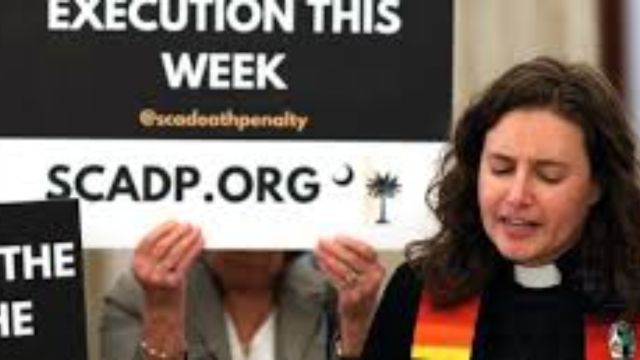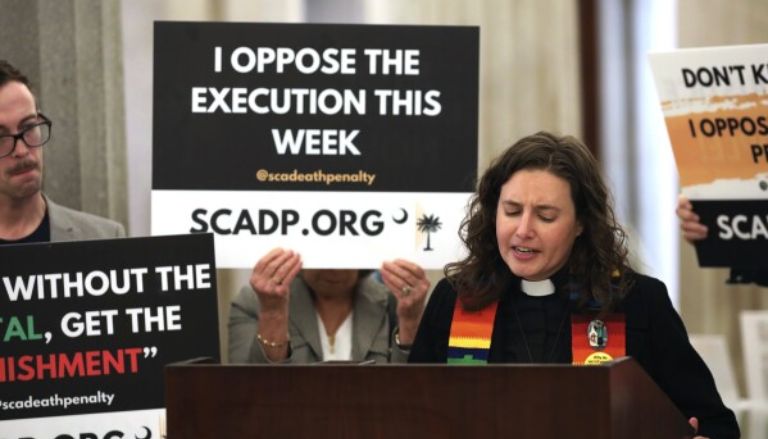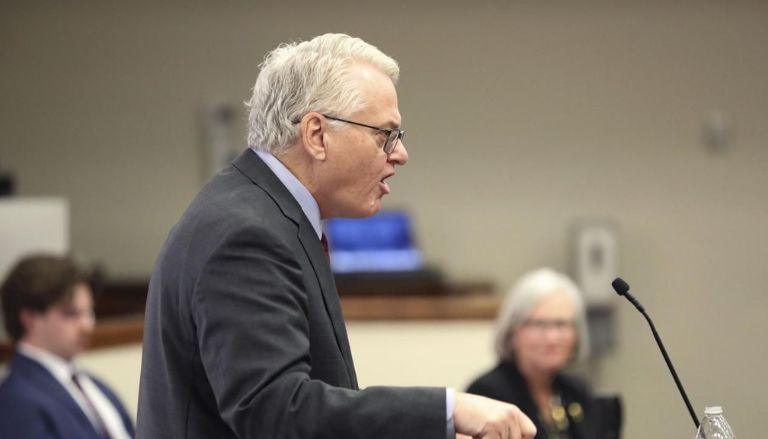COLUMBIA, S.C. — After the U.S. Supreme Court turned down the last appeal of a South Carolina inmate, he chose not to seek mercy from the governor. He said he didn’t want to spend his entire life in jail for a murder he claims he did not commit.
Marion Bowman Jr., 44, is set to be executed by lethal injection on Friday evening for the murder of a friend in 2001. Her body was found in her burning car.
On Tuesday around noon, judges decided without discussion that they would not stop Bowman’s execution while waiting for more points about whether his lawyer showed too much sympathy for the white victim and didn’t defend him strongly enough.
Five hours later, Bowman’s lawyer said he would not ask Governor Henry McMaster for a pardon.
Marion has always claimed he is innocent of killing Kandee Martin, but he has spent over half of his life on death row. Attorney Lindsey Vann wrote that he cannot morally request mercy which would mean spending his life in jail for a crime he did not commit.
Since the death penalty was brought back in South Carolina in 1976, no governor has ever shown mercy by changing a death sentence to life in jail without the chance of parole during the last 45 executions.
Bowman will be the third Black man to be killed in South Carolina in four months. This comes after the state reopened its death chamber, which had been closed for 13 years because officials had trouble getting lethal injection drugs.
He is set to be executed on Friday at 6 p.m. with one dose of pentobarbital at the Broad River Correctional Institution in Columbia.
“After over twenty years of struggling with a flawed system that has let him down repeatedly, Marion’s choice is a strong rejection of an unfair process that has already taken so much from his life,” Vann said.
Bowman was found guilty of murdering 21-year-old Kandee Martin in 2001. He has always claimed he is innocent since he was arrested and turned down a plea deal that would have given him a life term because he says he didn’t commit the crime.
Most of the proof against Bowman in his trial came from what his friends and family said. Many of them were given offers to shorten their jail sentences for related crimes or to drop some of the charges against them.
One friend said that Bowman was upset because Martin owed him money. A second testified Bowman thought Martin was wearing a recording device to get him jailed on a charge.
Bowman said he sold drugs to Martin, and sometimes they would have sex when she couldn’t pay.
Bowman’s final appeal argued that he didn’t receive a strong defense because his lawyer was racist. The lawyer was concerned about how a jury in South Carolina in 2002 would view a relationship between a Black man and a white woman.
The lawyer came to the jail and said, “You need to admit you are guilty.” “You are told to kill a white girl, and you and your family are Black.” Bowman wrote this.
The South Carolina Supreme Court dismissed Bowman’s appeal, saying it had no value. They also noted that comments from Bowman’s trial lawyer, which suggested he was especially sympathetic to the victim, were misunderstood.
Bowman’s lawyers argued that South Carolina’s shield law is unfair to prisoners because it provides very little information about the drugs used for executions and the methods of execution.
An anesthesiologist told Bowman’s lawyers that he is worried South Carolina’s method of lethal injection does not consider Bowman’s weight, which is recorded as 389 pounds (176 kilograms) in jail documents. It’s challenging to place an IV in a blood vessel and figure out the right drug amount for people with obesity.
Lawyers for the state said that obese people receive IVs for surgery and other treatments thousands of times every day.
This week, the American Civil Liberties Union (ACLU) filed a lawsuit against South Carolina, arguing that the privacy law is unfair. They claim that before this law was passed last year, the government shared a lot of information about executions, including details like the kind of rope used for hanging and the power used for the electric chair.

In South Carolina, prisoners can pick from three methods of execution: a new firing squad that hasn’t been used yet, the electric chair, or lethal injection.
Freddie Owens and Richard Moore, the two inmates executed since the death chamber reopened, both picked lethal injection. Owens was executed on September 20 and Moore on November 1.







Leave a Comment